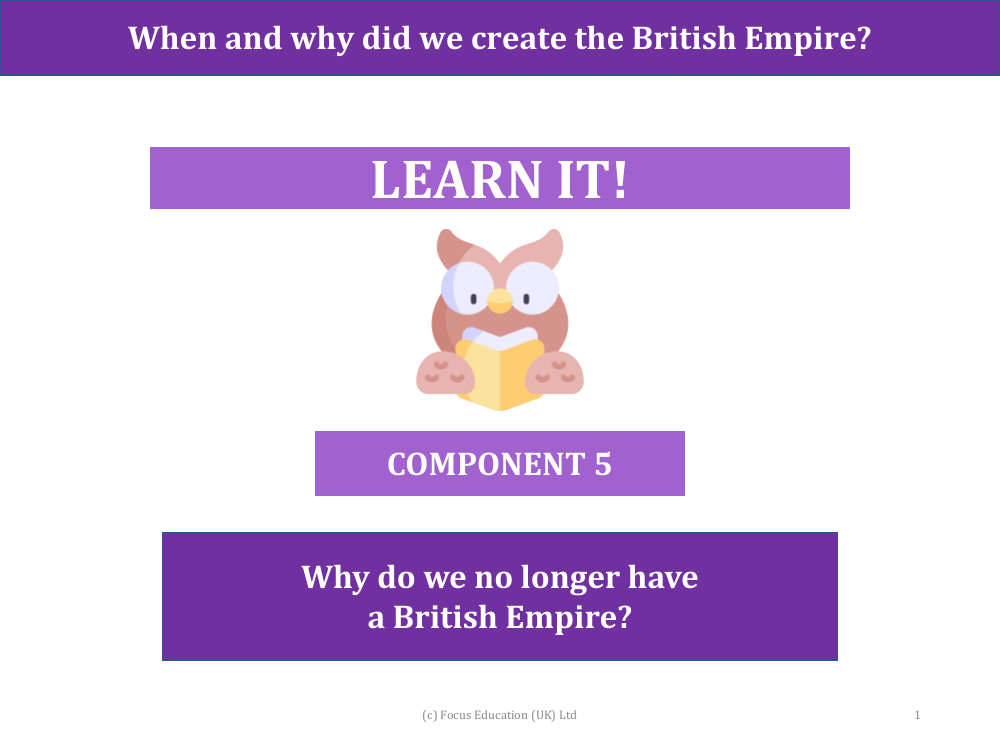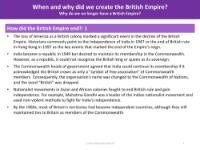Why do we no longer have a British Empire? - Presentation

History Resource Description
The dissolution of the British Empire and the establishment of the Commonwealth of Nations are pivotal moments in history that reshaped global relationships. The British Empire, once a vast dominion, began to unravel with significant events such as the loss of the American colonies and the independence of India in 1947. The end of British rule in Hong Kong in 1997 is often cited as the final curtain call for the Empire. India's transition to a republic in 1949, while still desiring to be part of the Commonwealth, led to a pivotal change: the British crown would no longer be seen as a sovereign but as a symbol of the free association of its members. This shift marked the renaming of the organisation to the Commonwealth of Nations and the removal of the term "British". Nationalist movements across Asian and African colonies also played a crucial role, with figures like Mahatma Gandhi advocating for independence through non-violent resistance. By the 1960s, the majority of Britain's former territories had gained independence, though many chose to retain their links with Britain by joining the Commonwealth.
The decline of the British Empire was further influenced by the aftermath of the World Wars. Post-World War I, the dominions signed peace treaties as independent states and joined the League of Nations, signalling their autonomy. The onset of World War II saw the dominions declaring war separately from Britain, further asserting their independence. Britain's role in World War II, although victorious, left the country economically devastated and less inclined to hold onto its empire. This period saw a gradual transition from the British Empire to a more modern and voluntary association of independent states known as the Commonwealth, which continues to connect nations with historical ties to Britain.



